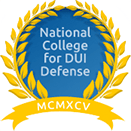
Facing Federal Charges for Transporting a Stolen Car?
If you are facing charges related to transporting a stolen vehicle under 18 USC Section 2312, it’s crucial to consult with experienced legal professionals as soon as possible. The stakes are high, and the penalties can be severe. At The Law Offices of Jonathan F. Marshall, our team includes skilled federal theft lawyers who can provide the focused legal support you need. To discuss your case and explore your legal options, contact us at (877) 534-7338 or online. Both methods of contacting the firm are available to you, offering flexibility and ease in a stressful time.
In the vast landscape of federal criminal laws, 18 USC Section 2312 stands as a crucial statute that addresses the issue of transporting stolen vehicles across state or international borders. Often misunderstood or overlooked, this law carries significant penalties, including hefty fines and imprisonment, for individuals found guilty of the offense. Below is a complete synopsis that delves into the essential components of this federal statute.
Key Elements Of 18 USC Section 2312
The statute focuses on the illegal transportation of stolen motor vehicles, vessels, or aircraft. To violate 18 USC Section 2312, the individual must knowingly transport a stolen vehicle, vessel, or aircraft across state lines or international borders.
Types Of Vehicles Covered
The law isn’t limited to just cars or trucks; it also applies to vessels, such as boats and ships, as well as aircraft. This broad definition covers a wide range of transportation modes, ensuring that all forms of motorized transportation are encompassed by this statute.
Requirement Of Knowledge
An essential component of this statute is the need for the perpetrator to have knowledge that the vehicle, vessel, or aircraft in question is stolen. This is not a law that ensnares those unaware of the illegality of the item they’re transporting; the prosecution must prove that the individual knew the vehicle was stolen to secure a conviction.
Jurisdictional Scope: Interstate And Foreign Commerce
The law only applies if the vehicle is transported in interstate or foreign commerce. This means that simply stealing a vehicle and driving it within the same state would not fall under the jurisdiction of this federal law. The act becomes a federal offense when the vehicle crosses state lines or is moved internationally.
Penalties Under 18 USC Section 2312
Those found guilty of violating this statute can face severe repercussions. The law stipulates that violators may be fined, imprisoned for not more than 10 years, or subjected to both penalties. This underscores the seriousness with which the federal system treats the crime of transporting stolen vehicles, vessels, or aircraft.
The Importance Of Intent
Another nuance worth noting is the role of intent in the interpretation and prosecution under this statute. Since the individual must “knowingly” transport the stolen vehicle, this law often requires clear evidence of intent. In this context, evidence like communications or actions that demonstrate awareness of the vehicle’s stolen status can be crucial in a case.
Defenses
Potential Defenses Based On Lack Of Knowledge
 One of the cornerstone elements in 18 USC Section 2312 is that the individual must “knowingly” transport the stolen vehicle, vessel, or aircraft. A viable defense, therefore, would focus on challenging the prosecution’s evidence that the defendant had knowledge of the vehicle being stolen. If you can prove that you were not aware of the vehicle’s stolen status at the time of transportation, you may be able to mount a successful defense against the charges.
One of the cornerstone elements in 18 USC Section 2312 is that the individual must “knowingly” transport the stolen vehicle, vessel, or aircraft. A viable defense, therefore, would focus on challenging the prosecution’s evidence that the defendant had knowledge of the vehicle being stolen. If you can prove that you were not aware of the vehicle’s stolen status at the time of transportation, you may be able to mount a successful defense against the charges.
Jurisdictional Defense: Lack Of Interstate Or Foreign Transportation
Another defense against charges under 18 USC Section 2312 hinges on the jurisdictional aspect of the law. Specifically, the statute only applies to vehicles transported “in interstate or foreign commerce.” Therefore, if the vehicle was never transported across state lines or international borders, this federal law would not apply. Proving that the vehicle remained within a single state throughout its journey could potentially serve as a valid defense.
Challenging The Status Of The Vehicle As “Stolen”
The federal statute is specific in dealing with “stolen” vehicles, vessels, or aircraft. If you can demonstrate that the vehicle was not technically “stolen,” you might have a valid defense. For instance, if the original owner lent you the vehicle willingly but later falsely reported it as stolen, proving this in court could negate the charges.
Evidence Of Ownership Or Legal Possession
Sometimes people are wrongly accused of violating 18 USC Section 2312 because they are in possession of a vehicle that was reported stolen, even if they are the rightful owner or have legal permission to possess the vehicle. If you can provide documentary evidence, such as a bill of sale or written permission from the owner, proving that you had a lawful reason for possessing and transporting the vehicle, you may effectively counter charges under this statute.
Questioning The Reliability Of Prosecution’s Evidence
A defense strategy could also involve challenging the reliability or legality of the evidence collected by the prosecution. For instance, if evidence was obtained through illegal search and seizure, it could be rendered inadmissible in court, weakening the prosecution’s case.
The Role Of Mistaken Identity Or False Accusation
Mistaken identity or outright false accusations can sometimes lead to charges under 18 USC Section 2312. If you can produce a solid alibi or other evidence that proves you were not involved in the transportation of the stolen vehicle, these could serve as strong defenses against the charges.
Affirmative Defenses: Coercion Or Duress
In some cases, individuals may be forced to transport stolen vehicles under coercion or duress. While difficult to prove, demonstrating that you were left with no reasonable alternative but to commit the act can sometimes serve as an affirmative defense.
Navigating the complexities of defenses to charges under 18 USC Section 2312 can be daunting, but understanding the specific elements and requirements of the law can provide a roadmap for devising an effective defense strategy.
FAQs About Transportation Of Stolen Vehicles Under 18 USC Section 2312
What Is The Primary Focus Of 18 USC Section 2312?
The primary focus of this federal statute is the illegal transportation of stolen motor vehicles, vessels, or aircraft across state or international borders.
What Types Of Vehicles Are Covered By This Law?
The statute covers a wide range of vehicles including motor vehicles like cars and trucks, vessels such as boats and ships, and even aircraft.
What Does “Knowingly” Transporting Mean In This Context?
“Knowingly” means that the person transporting the stolen vehicle, vessel, or aircraft is aware that it is stolen. The prosecution must prove this knowledge to secure a conviction.
Is It A Federal Offense If The Stolen Vehicle Is Not Transported Across State Lines?
No, the statute specifically mentions that the vehicle must be transported in “interstate or foreign commerce” for it to be a federal offense. Moving a stolen vehicle within the same state doesn’t fall under this law.
What Are The Penalties For Violating 18 USC Section 2312?
If found guilty, an individual can be fined, imprisoned for up to 10 years, or both.
Can I Be Charged If I Didn’t Know The Vehicle Was Stolen?
No, you can’t be convicted under this statute unless it’s proven that you knew the vehicle was stolen. Lack of knowledge serves as a defense in this case.
What If I Am Forced To Transport A Stolen Vehicle?
If you were coerced or under duress while transporting the stolen vehicle, it could serve as an affirmative defense, although it may be challenging to prove.
Federal Transportation Of Stolen Vehicle Lawyer
If you’re facing charges related to the transportation of stolen vehicles under 18 USC Section 2312, time is of the essence. The experienced federal theft lawyers at The Law Offices of Jonathan F. Marshall are here to help you navigate the complexities of federal laws and mount a strong defense on your behalf. Don’t hesitate; your freedom could be at stake. Contact us today at (877) 534-7338 or online to schedule a consultation and discuss your legal options.
To learn more about federal crimes, click here.











